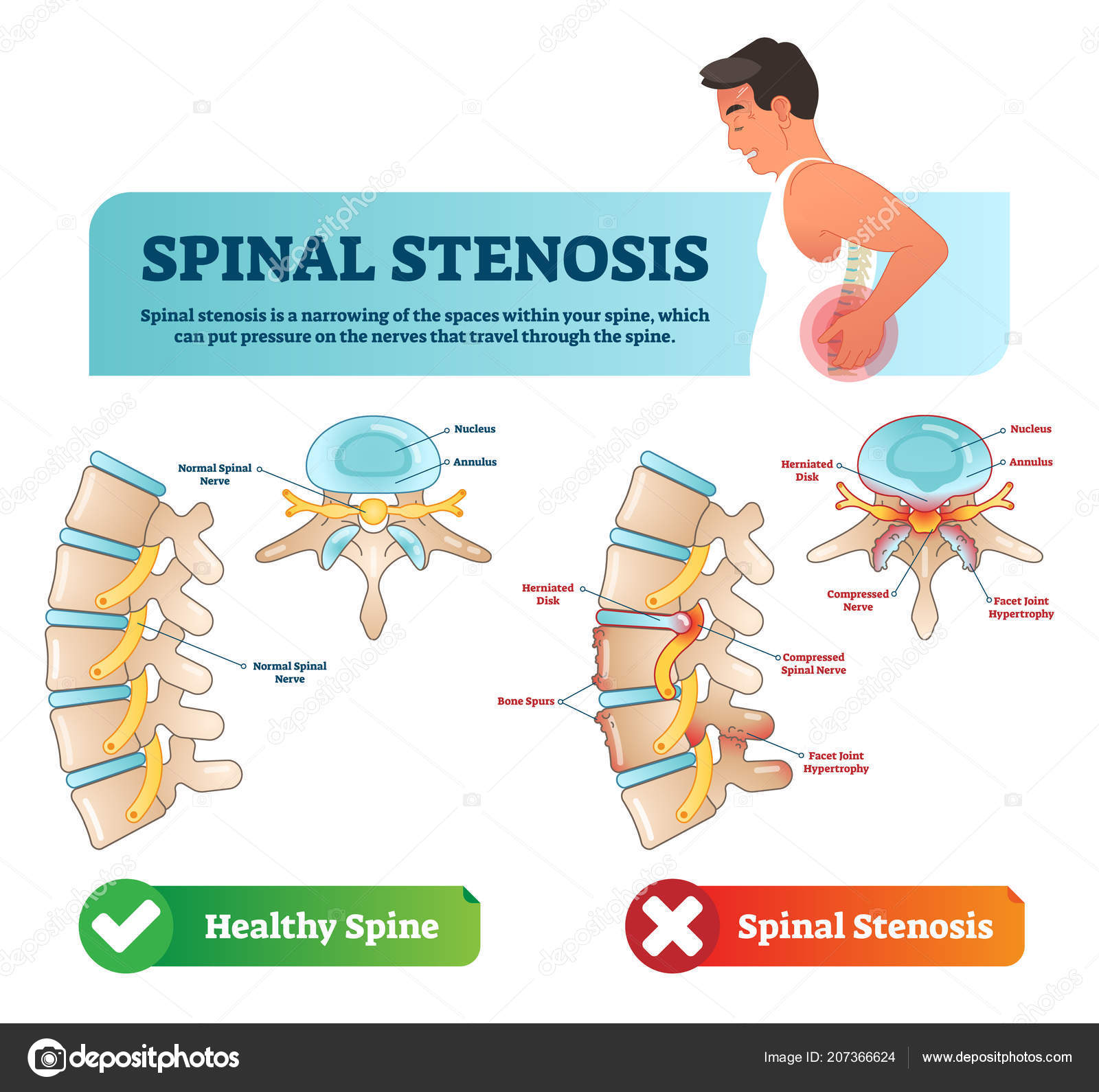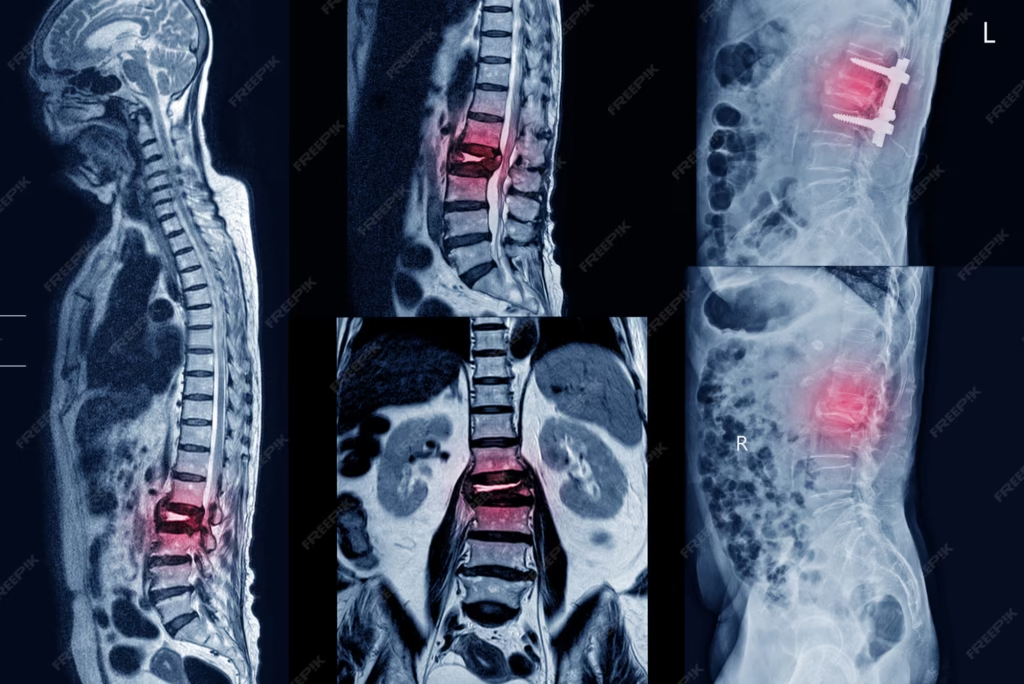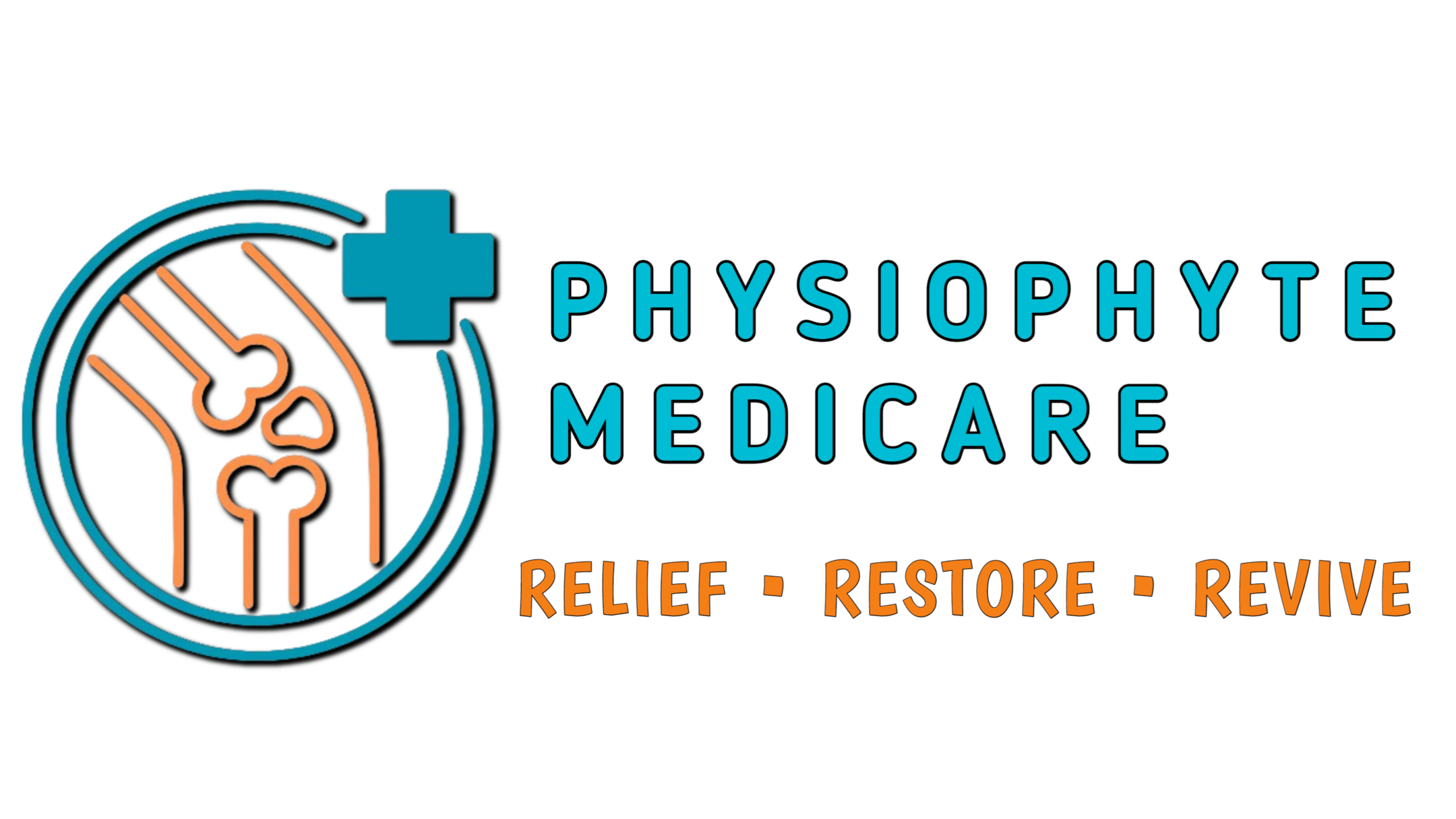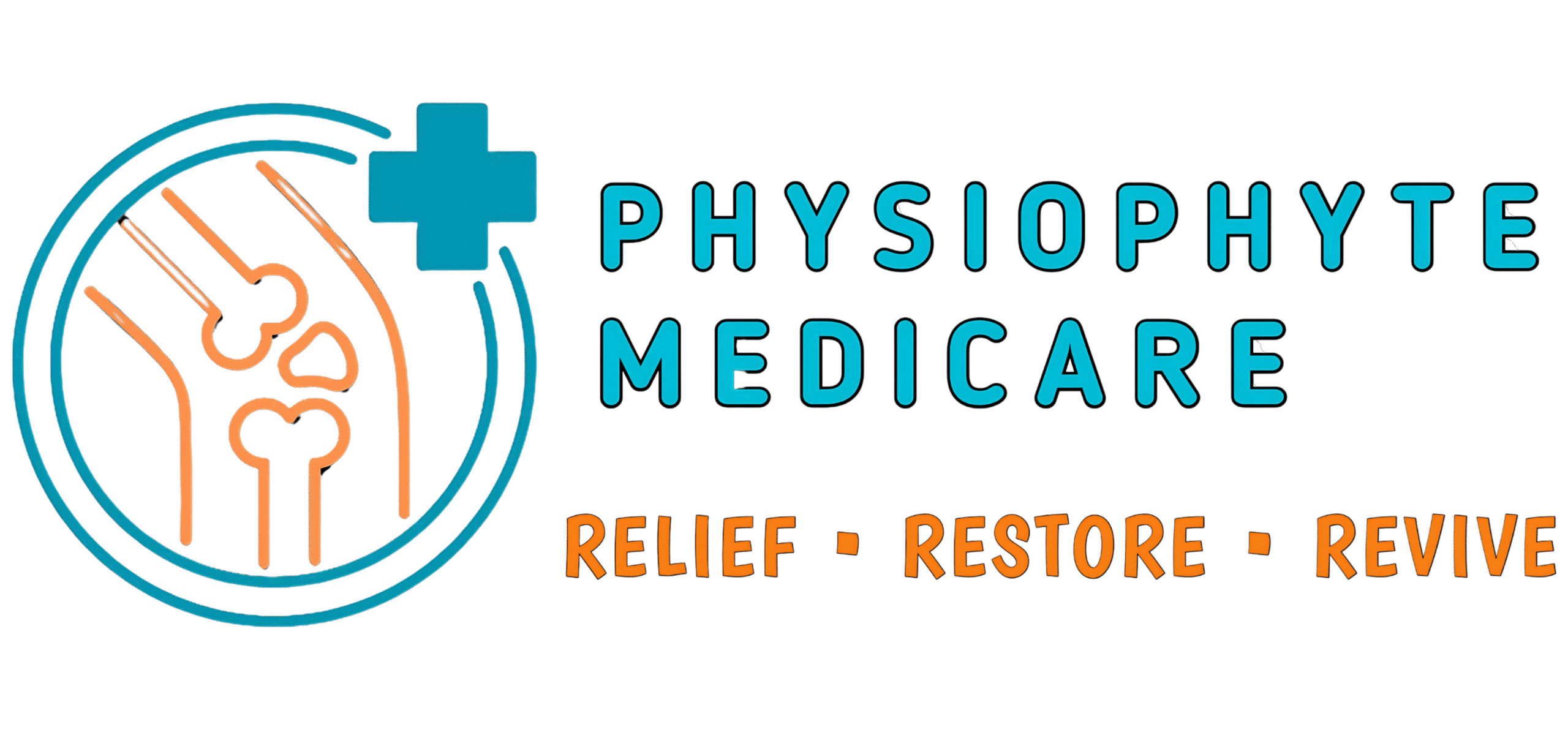
Spinal stenosis is a common condition affecting people across all age groups, especially those above 50 years. It refers to the narrowing of spaces in the spine, which puts pressure on the nerves traveling through the spine. This can cause significant pain, discomfort, and limited mobility if not managed properly. At Physiophyte Medicare, we are specialized in providing home physiotherapy service for Spinal Stenosis to help patients in Delhi, Gurgaon, Noida, Ghaziabad, Faridabad, and Patna effectively manage spinal stenosis with personalized treatment plans.
This blog will guide you through the causes, symptoms, diagnosis, and most importantly, how physiotherapy plays a crucial role in improving your quality of life while living with spinal stenosis.
✅ What is Spinal Stenosis?
Spinal stenosis occurs when the spinal canal narrows, compressing the nerves and causing discomfort in various parts of the body. It commonly affects the lumbar (lower back) and cervical (neck) regions.
Common causes:
- Age-related wear and tear
- Herniated discs
- Thickened ligaments
- Bone spurs
- Arthritis
- Injury or trauma
- Congenital conditions
✅ Signs and Symptoms of Spinal Stenosis
The symptoms may develop gradually and vary depending on the severity of nerve compression. Some common symptoms include:
- Persistent lower back or neck pain
- Numbness or tingling in legs, arms, or feet
- Muscle weakness
- Difficulty in walking or balancing
- Cramping or sharp pain during movement
- Reduced flexibility in the spine
- Loss of bladder or bowel control in severe cases
If you are experiencing these symptoms, early physiotherapy can significantly slow down progression and improve mobility.

✅ How Physiotherapy Helps in Spinal Stenosis
At Physiophyte Medicare, we focus on providing home physiotherapy treatment tailored to your specific needs. Our expert physiotherapists in Delhi, Gurgaon, Noida, Ghaziabad, Faridabad, and Patna assess the root cause and design treatment plans that aim at pain management, flexibility improvement, and long-term healing.
Benefits of Physiotherapy:
- Reduces pain and inflammation
- Improves strength and muscle support around the spine
- Enhances posture and spinal alignment
- Increases range of motion
- Helps prevent further nerve damage
- Offers personalized exercises suitable for home care
- Provides ergonomic advice and lifestyle modification tips
✅ Common Physiotherapy Treatments for Spinal Stenosis
Here’s how we help manage spinal stenosis at home through structured physiotherapy services:
1. Manual Therapy
- Soft tissue mobilization
- Joint manipulation techniques
- Stretching exercises to relieve pressure on nerves
2. Therapeutic Exercises
- Core strengthening exercises
- Flexibility training
- Postural correction exercises
- Balance and stability workouts
3. Pain Relief Modalities
- Heat or cold therapy
- TENS (Transcutaneous Electrical Nerve Stimulation)
- Ultrasound therapy to reduce inflammation
4. Patient Education
- Correct posture techniques
- Safe movement strategies
- Guidance on avoiding strain or stress
- Breathing exercises to relax muscles
5. Home Exercise Program
Our physiotherapists design personalized exercise schedules that patients can easily follow at home, ensuring consistency and better outcomes.
✅ Why Choose Physiophyte Medicare?
At Physiophyte Medicare, we believe in making physiotherapy accessible, comfortable, and effective. Our services are tailored for each patient, keeping in mind their condition, pain level, lifestyle, and environment.
What sets us apart:
✔ Expert physiotherapists trained in spinal care
✔ Customized home physiotherapy programs
✔ Regular progress monitoring
✔ Affordable, result-driven treatment plans
✔ Special focus on spinal stenosis management
✔ Services available in Delhi, Gurgaon, Noida, Ghaziabad, Faridabad, and Patna
✅ Treatment of Spinal Stenosis with Physiophyte Medicare
Spinal stenosis doesn’t have to control your life. Our physiotherapy treatments not only focus on immediate pain relief but also aim to build long-term strength and mobility.
Our approach includes:
- Thorough assessment of spinal health
- Development of safe, patient-friendly exercise routines
- Use of advanced physiotherapy techniques
- Regular evaluation and adjustments based on progress
- Collaboration with doctors for holistic care
Patients with spinal stenosis often see significant improvements in pain, flexibility, and daily functioning within a few weeks of following our physiotherapy treatment plan.
✅ Our Location For Home Physiotherapy Service
We provide expert spinal stenosis physiotherapy treatment at home in the following locations:
- Home Physiotherapy in Delhi
- Home Physiotherapy in Gurgaon
- Home Physiotherapy in Noida
- Home Physiotherapy in Ghaziabad
- Home Physiotherapy in Faridabad
- Home Physiotherapy in Patna
Feel free to reach out to us in your city to begin personalized spinal stenosis care.
✅ Final Thoughts
Spinal stenosis can be a life-altering condition if ignored, but with the right treatment and guidance, you can live a pain-free, active life. Physiophyte Medicare offers expert, home-based physiotherapy care for spinal stenosis patients in Delhi, Gurgaon, Noida, Ghaziabad, Faridabad, and Patna. Our team is dedicated to helping you regain strength, mobility, and confidence through scientifically proven treatment techniques and compassionate care.
Take the first step toward better spinal health. Contact Physiophyte Medicare today and start your journey toward a pain-free life with expert home physiotherapy.
✅ FAQs About Spinal Stenosis
Is spinal stenosis curable?
Spinal stenosis cannot be completely “cured” but it can be effectively managed with physiotherapy, medication, and lifestyle changes. Early intervention helps in reducing symptoms and improving mobility.
Can I do physiotherapy at home for spinal stenosis?
Yes! Physiophyte Medicare offers structured home physiotherapy services with expert guidance, exercises, and monitoring in cities like Delhi, Gurgaon, Noida, Ghaziabad, Faridabad, and Patna.
How long does treatment take to show results?
Most patients start feeling improvements within 4–6 weeks of regular physiotherapy sessions combined with home exercises and proper posture training.
Will physiotherapy eliminate the need for surgery?
In many cases, physiotherapy reduces the need for surgical intervention by improving strength, reducing pain, and managing symptoms effectively.
Is physiotherapy painful?
No, physiotherapy treatments are designed to be safe and progressive. You may feel some muscle soreness initially, but it helps improve strength and mobility without causing harm

